Background of the author, Kelly Liu:
I am a Hongkonger working as a journalist in Hong Kong, and now studying M.A. in Human Rights in Germany. During July to September, I participated the protest in Hong Kong as a first aider.
Special thanks to Timothy Hall for editing
Last update of this article: 8.11.2019
Do you know German can also be extradited to China under the Extradition Law amendment?
2.11 was another unrest day in Hong Kong while we, here in Germany, were having a peaceful Saturday after Halloween and a public holiday. Though the protest has been lasting for almost half a year and there are many cruel activities happening around the world that might make the scenes in Hong Kong less shocking in comparison, it is still worth for you to look back into the whole issue between Hong Kong and mainland China, and to see how it may relate to you and your future as a “foreigner” to Hong Kong.

In front of the extradition bill, no one is an “outsider”.
I believe you are already very familiar to those brutal scenes so I would rather start with what matters to you as a European. That is, if the extradition bill had passed and implemented (which has now been withdrawn), technically, you would be also at risk to be extradited to mainland China once you are within the Hong Kong border, even though you are a foreigner holding a German passport. A former Hong Kong lawmaker said “(the extradition bill) can be regarded as a mirrored counterpart of the legal rights utilized by the US government in Meng’s (CFO of Chinese tech giant Huawei) case.” in an interview with Quartz (published on 11.6).
It is problematic because many countries, including Germany, have not signed an extradition agreement with China. In this case, Hong Kong as an international city attracting companies and NGOs around the world may become an extradition port for China, bluntly speaking. More importantly, there are well founded worries that the Chinese government may use false charges to extradite people in Hong Kong in order to eliminate political enemies or to suppress opposing voices. The protesters do not believe that suspects are able to receive fair trials, lawful and safe detention in mainland China. It is easy to find many real cases regarding the infringement of human rights on Google and see the legitimacy of such fears.
BBC News quoted a statement of Human Rights Watch’s Sophie Richardson in a news piece published on 22.8, “The proposed changes to the extradition law will put anyone in Hong Kong doing work related to the mainland at risk”. Besides human rights defenders, there were many businessmen and companies worried too because once one gets extradited, their savings and other properties in Hong Kong can also be frozen or confiscated by another law in the same amendment proposal
Why is the protest still lasting after the withdrawal?
Hong Kong is special because it is close to China, but has a sophisticated legal system separated from China’s. This characteristic protects basic human rights of the people. However, the bill has shaken this advantage and even the constitutional principle of “One country, Two systems” behind. It severely frightened Hongkongers. That caused the majority of Hongkongers including important stakeholders, for instance, religious leaders, middle class, big companies, a billionaire, schools, judges and lawyers, other professionals as well came together to oppose the bill. Given that it is the first time for most of these stakeholders to stand with the protestors.
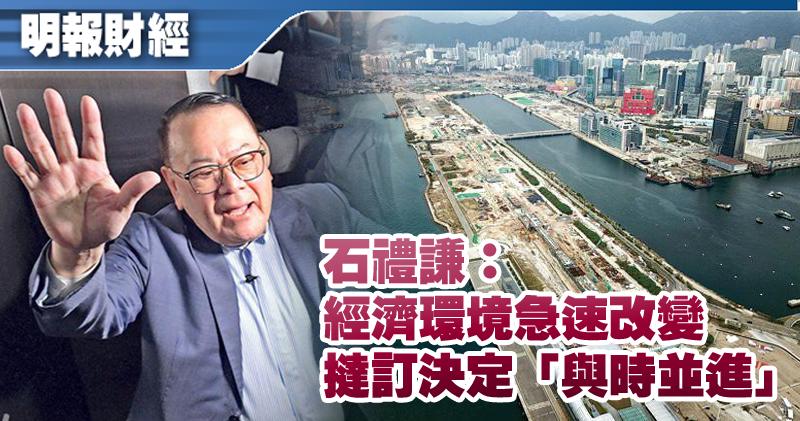
Info: One country two systems
Hong Kong was colonized by the U.K. for 99 years and handed over to China in 1997. After negotiation between the U.K. and China, China agreed to allow Hong Kong remain unchanged for 50 years regarding rule of law and signed “The Joint Declaration of the Government of the United Kingdom of Great Britain and Northern Ireland and the Government of the People’s Republic of China on the Question of Hong Kong”. Moreover, there is a separate constitution law, called the “Basic Law”, for Hong Kong as a city of China, which was also included in the negotiation above. As a result, the political regimes (systems) and cultural are totally different from the ones in mainland China. This principle is called “one country, two systems”.
The protestors quickly realized that similar threats can only be prevented if Hongkongers can vote for their own chief executive. Otherwise, appointed ones, like the current Carrie Lam, will only be under tight control of the Chinese government. Therefore, the protests opposing the extradition bill have become a democratic movement. You could have seen “dual universal suffrage” as one of the 5 demands starting from the end of June, given that “dual universal suffrage” is written and guaranteed in the constitutional law, Basic Law, of Hong Kong.

Has it become a protest mainly to fight back police brutality?
I personally was a first aider on the field in Hong Kong from July to September. Talking about the police brutality and the reasons for fighting them, I had once asked a frontliner who is only 15 years old for an answer. He explained he fought the police “because they are protecting the HKSAR government by using excessive police force. To confront it (HKSAR government) and shake the political system, we need to win the battle with the police first. We don’t have choices.” And most of them, including some first aiders, have been ready to sacrifice their lives for the resistance by writing their “last words” to their families and friends.
However, winning against the police seems to be an impossible mission as police brutality has only become heavier throughout these months, and it has been further empowered by Anti-Mask Law, Emergency Law and several injunctions (orders of the high court) starting from October. The police even cooperates with triads and gangs to harm and oppress protestors.
Apart from what you may have already known and the use of excessive force, the police recently (between 2.11-5.11):
1.) Arrested anyone makes them unhappy. For example, a guy was arrested on 2.11 just because he was playing “Glory to Hong Kong” in his own car.

2.) Attacked and arrested journalists, violating freedom of expression; first-aiders, hindering humanitarian rescue; and District Council election candidates, violating right to vote and right to be elected.
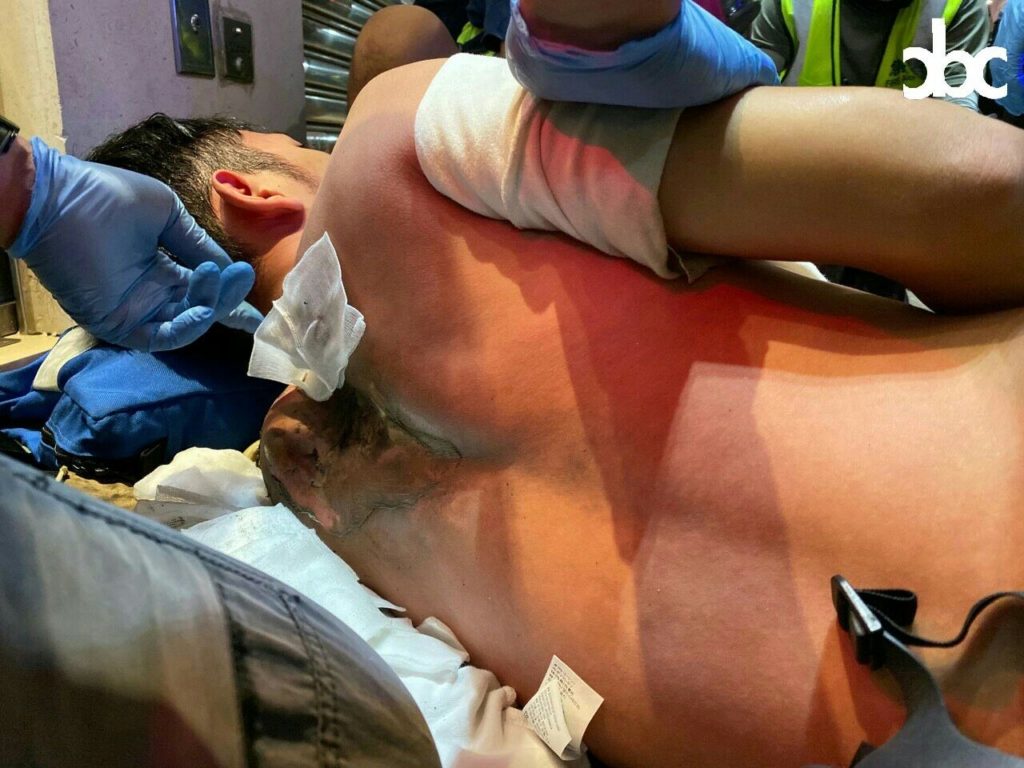
3.) Letting go of triad who committed bodily harms on protestors and local residents. On 3.11, Several protestors got hurt with knives by pro-beijing persons, and one of the pro-democracy politician at the same location got bitten off his ear by a pro-beijing man.

4.) Deployed tear gas bombs with cockroach poison while dehumanizing the protestors as cockroaches to justify their brutality.
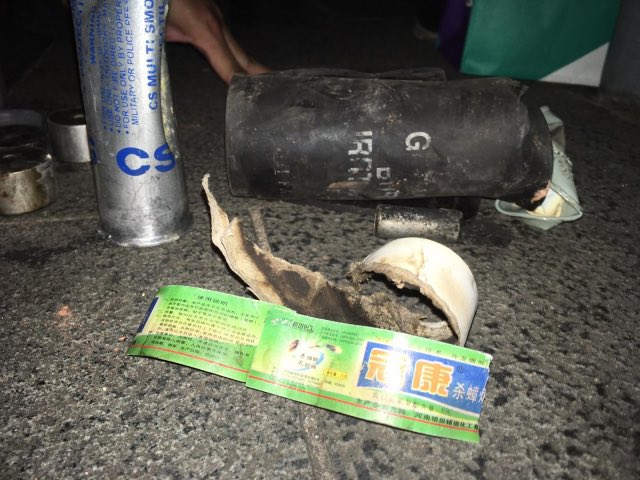
5.) Deployed tear gas wherever they want affecting other citizens who were having meal in restaurants, owners of newspaper stores on the street, homeless people, little kids walked their way home, also who were only at their home.
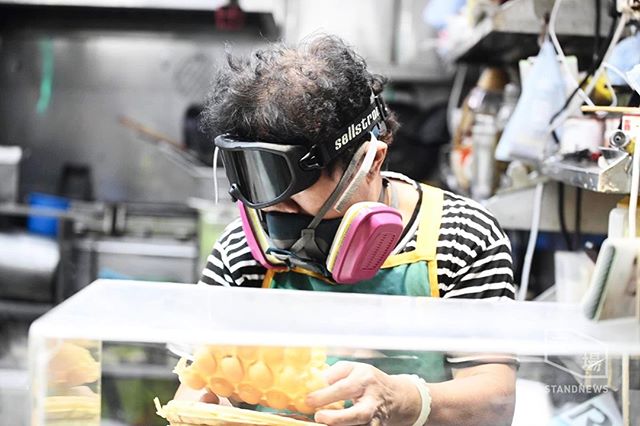
6.) Broke into malls to beat up people who peacefully gathered singing and refused to obey commanders’ orders of going back to the street.

7.) Covered their faces and appointing numbers to hide their identities and prevent inquiries, given that the high court has already granted several injunctions to stop people revealing their identities and personal data.
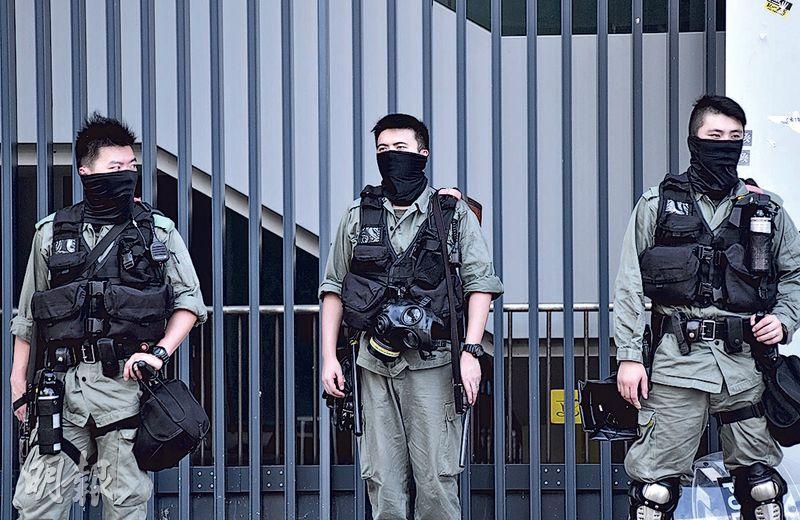
8.) Sent undercover police to set fire on the street and destroy public facilities, and put the responsibilities on protestors.
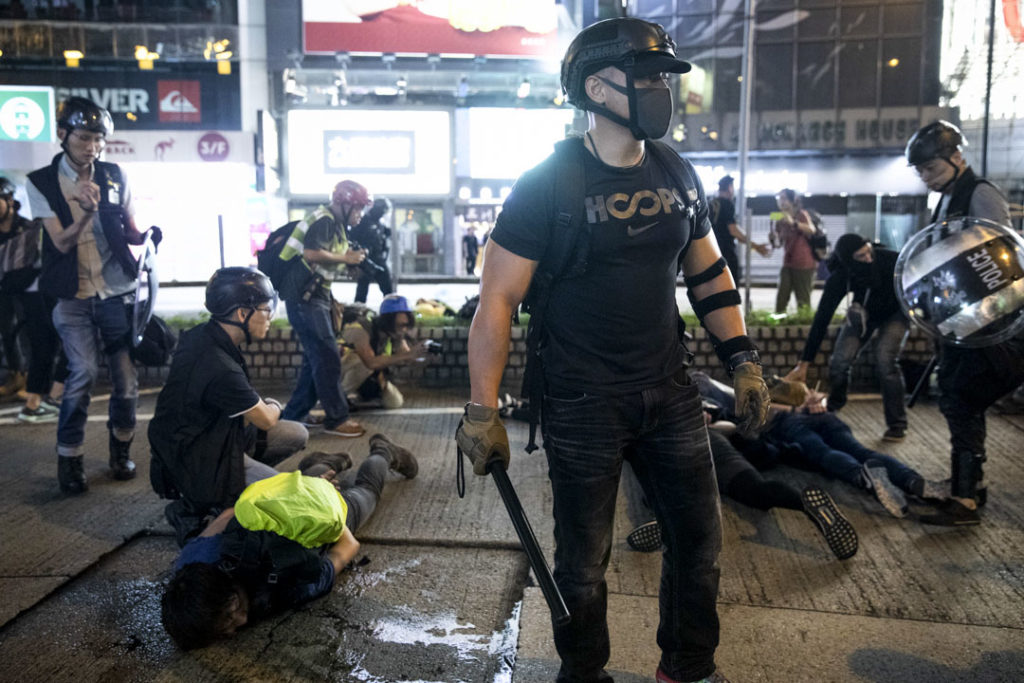
9.) Does not allow most of the lawful and peaceful assemblies including Halloween parties, public candidate meeting for the district council election.
9.a.) They requested a citizen to remove her heavy Halloween makeup in a public party according to the Anti-Mask Law, which should only apply in assemblies.
9.b.) They even threatened a man with his wife and a little kid that they would be arrested as participants in unlawful assembly if the man continued to shout at the police, given that there were only these 3 persons and the location was just downstairs of their home.

10.) Requested arrested protestors to sing “Glory to the police” in the melody of “Glory to Hong Kong”. On the other hand, they do not allow the suspects to call their lawyers and do not allow those injured to seek for immediate medical help; An injured first aider I know personally got arrested and detained had to wait for about 12 hours to get reached by his lawyer and for about 18 more hours before he was sent to the hospital.
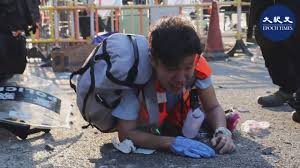
11.) Restricts what people say on Telegram and an online forum with injunction of courts.

You could see the power of the police has grown unlimitedly and unreasonably through the above examples. And these are only the tip of the iceberg. There are even rumors about raping, torturing and killings committed by the police. Despite the many complaints and accusations from within and outside of Hong Kong, directed at the police actions and the Police General Orders of Hong Kong, many pride themselves in what they are doing. Several policemen wore a non-uniform badge written “National Hero” in Chinese when they were working on the field.
If you ask me why it makes sense to continue the protests and defend against the police, I will say: while Hongkongers were protesting peacefully at the beginning to ask for democracy and human rights protection originally guaranteed in the constitution law and the police oppressed them, the police was symbolically suppressing the idea and belief of democracy, human rights and justice behind. And they are still doing it. Therefore, Hongkongers can only either resist suppression, if not totalitarianism from the Chinese central government, or go home and remain quiet for the rest of their lives.
If they choose the latter choice, it would definitely cause big troubles to global citizens, NGOs and companies working with mainland but based in Hong Kong: imagine the extradition bill comes back and gets passed without opposite voice and protests. Last but not least, as we share human frailty, feeling of pain for example, we will also share the infringement of basic human rights at the end if we do not aware the necessity of human rights protection from China, a growing global giant. This is why I think you should also consider to stand with Hong Kong even if you are a pragmatic person not dreaming about justice and human rights.
How could this violent battle be ended?
Some said, if the protestors had not come out and used violence to destroy things, the police would not have committed to all these violence. Well, I will say the police is the public authority and it is standing firm now to protect the government. Hence all of the violence on the field from both sides can only be stopped by the government with listening and responding to the 5 demands of the people. Otherwise, disturbing social order would still be the people’s only weapon to resist, and everyone would only fall into the loop of the usage and arguments of violence again and again, in short and long term.
Any good news? Yes – new protesting strategies generated
This democratic movement has been lasting for 5 months. Comparing to the Umbrella Movement happened in 2014, which had lasted for less than 3 months, this time is more sustainable with a new strategy called “Be Water”.
In 2014, we occupied and defended three specific areas in Hong Kong, but we gradually lost connections and supports from the majority of people because of geographic limitation. And we were simply dispersed by injunctions from the high court and the police force in one day. By learning, this time, the protestors figured out to protest anywhere and anytime responding to the changes of circumstances without a well planned schedule. So actions are usually unpredictable like “the flow of water”.
It is effective because it is hard for the police to prepare and target specific locations and people, especially when the protestors executing “hit and run”, sub-strategy of “Be Water”. Recently, Hongkongers successfully further created a functioning balance between resisting and working in their daily lives; they walk together to work and to school with slogans yelled and held as a form of march in the morning; they assemble and repeat slogans at lunch time as a form of peaceful assembly; they go on the street with the dress code of black after work and school to strike; more importantly, most of them go home to take rest at mid-night, and start over on the next day or another random day. To round up in one sentence, “Be Water”, as a creative and unpredictable tactic, requires a strong solidarity and trust among the people.
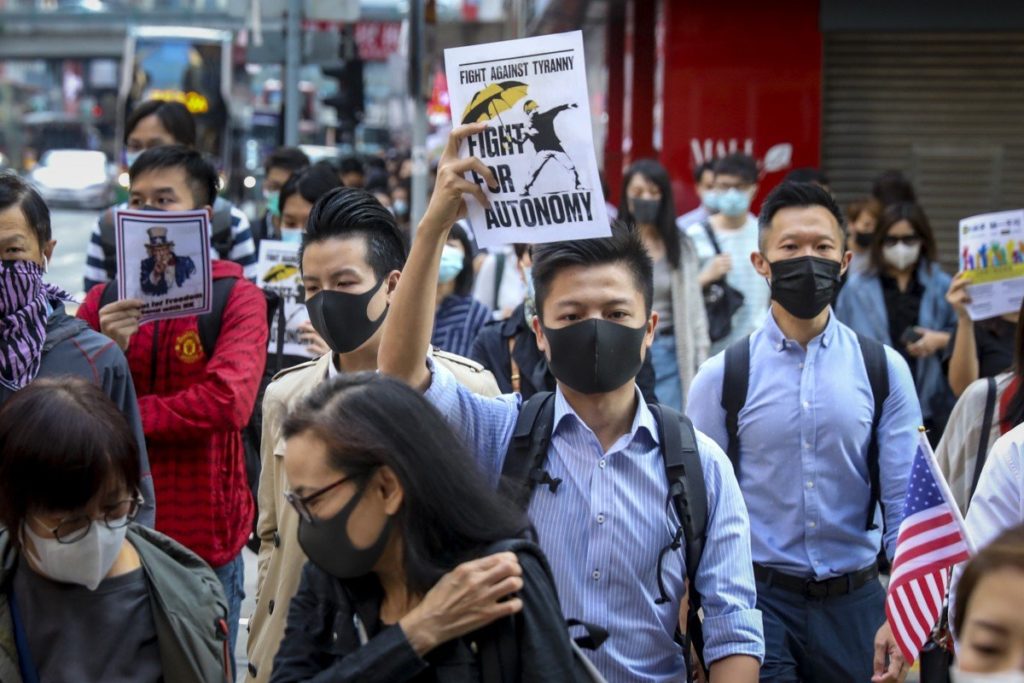
The second lesson we learned from the Umbrella movement is internal struggle can bring a civil movement to an end. At that time, the solidarity of protestors was deteriorated by internal struggles about questioning the leaders and strategies of the movement. Therefore, to prevent internal struggles and the death of the movement, this time we insist not to recognize any leaders, known as a “leaderless” approach, but emphasize to respect different action ideas. The movement is then decentralized under this approach allowing the people to keep the solidarity with a high demand of understanding and tolerance to each other. On the other hand, it also avoids the police to attack the entire movement by simply arresting the leaders.
An unexpected reward of “leaderless” is that the society has become more inclusive that people with different ethnicities, religions, economic backgrounds, social status and ages recognize themselves and others as a whole under the newly established identity of Hongkongers.
Footnotes:
5 demands of the movement
- Full withdrawal of the extradition bill
- A independent commission of inquiry into alleged police brutality
- Retracting the classification of protestors as “rioters”
- Amnesty for arrested protestors
- Dual universal suffrage, meaning for both the Legislative Council and the Chief Executive
- (A newly forming demand) Disbanding the police

Number of arrested protestors
(9.6-31.10)
3007 got arrested aging from 10-70 and above
500 got charged with rioting, unlawful assembly, wearing masks, etc.
104 arrested suspects are under 16 including kids who aged only 10. (until 10.10)
Severe Injuries and no. of death (updated on 8.11)
- A 22 years old university student, Chow Tsz-Lok, fell down from a car park and got injured severely during the police operation on 3.11. He died on 8.11 morning. His death is suspicious. CCTV showed there is possibility that he was killed by someone.
- 9 case of suicide (until 4.11) as a form of resistance (with last words proven)
- Type of severe physical Injuries: loss of eyes, a ear, ability of walking; hemorrhage (bleeding in brain); breaking of lungs; heavy bleeding of heads
- Approximately several thousands people injured. Over 100 suspitious suicide cases.
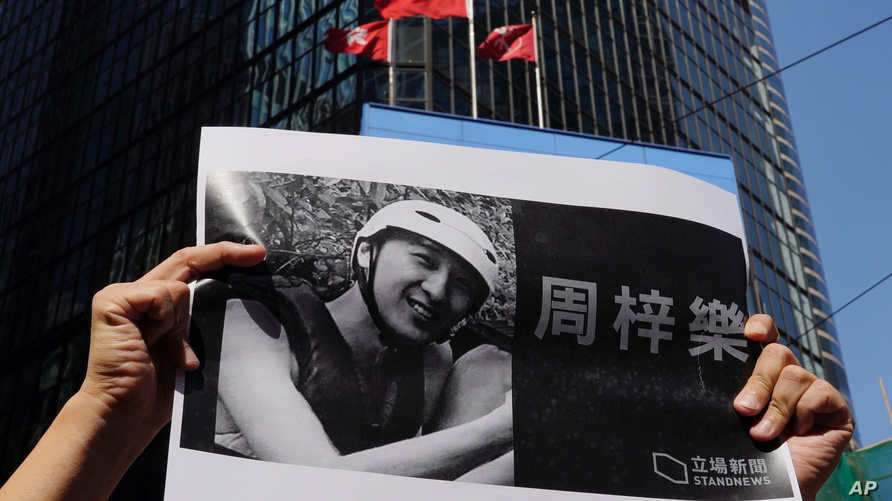
Famous Slogans
- Five demands, Not one less.
- Liberate Hong Kong, The revolution of our times.
- There are no rioters, Only a tyrannical regime.
- Fight for freedom, Stand with Hong Kong.
- Free Hong Kong, Democracy Now.
Important Songs
Glory to Hong Kong (HK Version)
https://www.youtube.com/watch?v=hK31N0UQkqw
Glory to Hong Kong (Eng Version)
https://www.youtube.com/watch?v=koOAJHt9UO8
Can you hear the people sing? (HK Version)
https://www.youtube.com/watch?v=zhQIOfDQdCo
